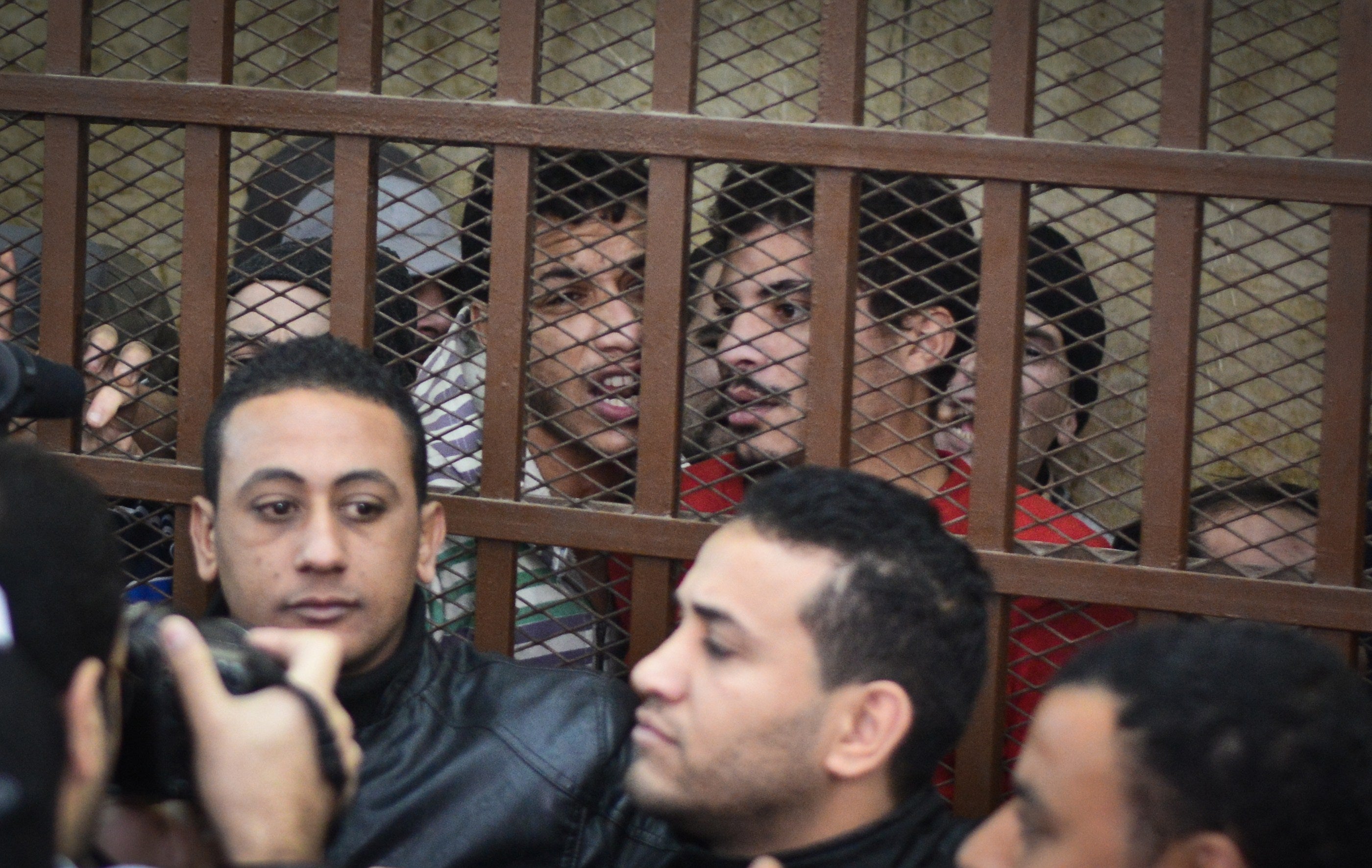Egypt police ‘using dating apps’ to find and imprison LGBT+ people
Victims thrown into jail and tortured, claims HRW

In a brutal effort to “clear the streets” of the LGBT+ community, security forces are entrapping Egyptians using dating apps, throwing them into jail, and subjecting them to systematic torture and abuse, a new report has found.
Using social media and apps such as Grindr, Egyptian police are creating fake profiles that they use to meet gay, lesbian, bi and trans people, at which point they are picked up off the street and arbitrarily arrested, Human Rights Watch said on Thursday. Police then unlawfully search through the content of their phones to justify keeping them in detention and bring charges against them.
“Yasser”, 27, told the group he was arrested when he met another man in Giza Center City after chatting with him on Grindr, a same-sex dating app.
“When they came back with a police report, I was surprised to see the guy I met on Grindr is one of the officers. They beat me and cursed me until I signed papers that said I was ‘practicing debauchery’ and publicly announcing it to fulfill my ‘unnatural sexual desires’.”
While in detention, all of the fifteen people interviewed by the rights group said security forces subjected them to physical and verbal abuse, “ranging from slapping to being water-hosed and tied up for days”.
Political activist and transgender woman Malak el-Kashif, 20, said she was arrested and “put in a cage-like cell” the size of a freezer after attending a protest in March 2019. Security forces questioned her about her private life, her sex-reassignment surgery and her relationship with other activists, she said.
“I suffered the worst verbal abuse I have ever encountered by police officers and they forbade me from going to the bathroom for two days. They subjected me to a forced anal exam. They sexually assaulted me,” she said.
Eight were victims of sexual violence while five were forced to undergo anal examinations, the New York-based rights watchdog said.
One 28-year-old trans activist said she bled for three days after police officers subjected her to forced vaginal and anal examinations as part of so-called "virginity" tests, according to the report.
Another of the victims, “Alaa”, said he has been forced to use a crutch because of injuries from being brutally beaten and serially raped by other detainees.
"‘Virginity' and anal tests constitute cruel, degrading, and inhuman treatment that can rise to the level of torture and sexual assault under international human rights law," HRW said.
The attacks come amid a fierce anti-LGBT crackdown in the country following the 2017 Mashrou’ Leila concert, when a picture of Sarah Hegazy raising a rainbow flag among the crowd was widely circulated. She was quickly detained by police, who tortured her for months and incited fellow detainees to beat and sexually assault her. Hegazy killed herself three years later, sending waves of shock and solidarity worldwide.
Rights groups say that since the concert authorities have stepped up arrests and prosecutions against LGBT+ people using vague discriminatory “debauchery” and “prostitution” laws.
"Egyptian authorities seem to be competing for the worst record on rights violations against LGBT+ people in the region, while the international silence is appalling," said Rasha Younes, HRW's LGBT+ rights researcher for the Middle East and North Africa.
“Egypt’s partners should halt support to its abusive security forces until the country takes effective steps to end this cycle of abuse, so that LGBT+ people can live freely in their country.”
Join our commenting forum
Join thought-provoking conversations, follow other Independent readers and see their replies
Comments


Bookmark popover
Removed from bookmarks